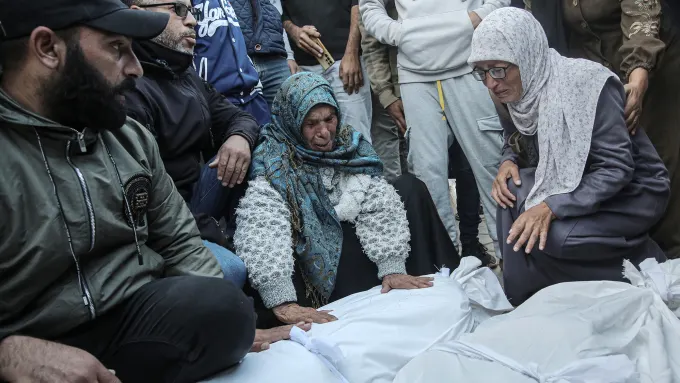Israeli airstrikes on northern and central Gaza have killed at least 87 Palestinians within the past 24 hours, pushing the war’s overall death toll in the enclave to over 44,000, according to local health authorities.
Dr. Hossam Abu Safiya, director of Kamal Adwan Hospital in Beit Lahiya, reported that at least 65 people were killed in overnight strikes in northern Gaza, with many casualties still being pulled from the rubble. “The hospital medical team retrieved 65 martyrs using their hands due to the absence of rescue equipment,” Abu Safiya told media. He also issued a dire warning that the hospital could turn into a mass grave without urgent international intervention and medical aid.
In another strike on Wednesday, 22 people, including 10 children, lost their lives in the Sheikh Radwan neighborhood north of Gaza City, according to Dr. Muneer Alboursh of Gaza’s Health Ministry. The airstrikes targeted a family home, and rescue efforts were ongoing to recover victims trapped under debris.
The death toll in Gaza continues to climb amidst Israel’s renewed military offensive. Since the conflict began last year, the Health Ministry in Gaza has recorded over 44,056 deaths and more than 104,000 injuries.
Israeli Strikes Extend to Lebanon
Meanwhile, in Lebanon, Israeli airstrikes hit the southern suburb of Beirut early Thursday, targeting the Hezbollah stronghold of Haret Hreik. Lebanon’s state-run National News Agency (NNA) reported that several buildings were destroyed, with low-altitude drones accompanying the strikes.
Israel had earlier issued evacuation warnings for specific buildings in Haret Hreik and the southern city of Tyre. The strikes coincide with ceasefire negotiations facilitated by US envoy Amos Hochstein. While Hochstein indicated that a ceasefire agreement is within reach, he stressed that the decision ultimately rests with the conflicting parties.
As the situation escalates, the humanitarian crisis in Gaza worsens, with hospitals overwhelmed, medical supplies dwindling, and rescue efforts hindered by a lack of resources. Calls for urgent international intervention grow louder, underscoring the devastating toll of the ongoing conflict.

